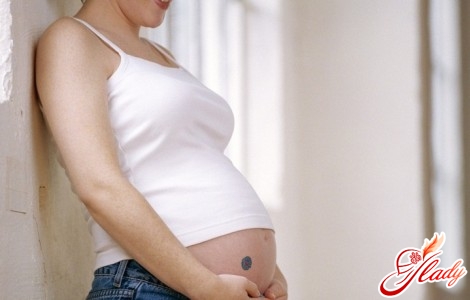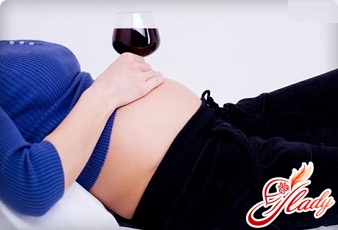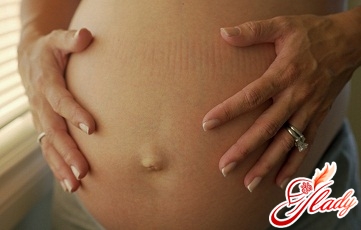 Alcohol and pregnancy - no one hasникаких сомнений в том, что эти два понятия абсолютно несовместимы. Однако, несмотря на это, вокруг этого вопроса «алкоголь и беременность» уже не одно десятилетие ведутся всевозможные споры. Одни утверждают, что небольшое количество алкоголя не повредит ребёнку, другие же, говоря об алкоголе и беременности, пугают страшными последствиями для развития плода. Кто же из них прав? И почему в наше время беременная женщина со спиртным напитком в руках стала практически нормальным явлением и абсолютно никого не удивляет? Разумеется, никто не может указывать будущей маме на то, как она должна вести себя. Однако прежде чем принять решение о том, допустимо ли для вас употребление алкоголя, ознакомьтесь, пожалуйста, с данным материалом. Ниже подробно описано воздействие алкоголя на беременную женщину и плод, начиная от планирования беременности и заканчивая родами. Всем известно, что алкоголь во время беременности негативно влияет на плод, однако мало кто задумывается над таким важным вопросом, как «алкоголь и планирование беременности». Ведь на самом деле алкоголь и планирование беременности также мало совместимы между собой. Очень неразумно надеяться на «авось» и считать, что это вас не касается, и вы попадёте в тот ничтожно малый список счастливчиков, которым просто повезло после употребления алкоголя во время беременности обойтись без негативных последствий. Кроме того, ни в коем случае не забывайте, что последствия могут быть и «долгоиграющими», которые дадут знать о себе через много лет. Многочисленные исследования, подтверждённые учёными, доказывают тот факт, что в том случае, если один из родителей, а уж тем более оба, в период планирования беременности злоупотребляют алкогольными и слабоалкогольными напитками, риск возникновения осложнений нормального течения беременности и нарушение нормального развития плода значительно повышается. Тот факт, что нельзя совмещать алкоголь и планирование беременности, был известен ещё нашим предкам. Отец медицины Гиппократ утверждал, что употребление алкоголя во время планирования беременности вызывает у ребёнка развитие таких болезней, как эпилепсия и идиотизм. Новобрачным в день свадьбы строго воспрещалось пить даже небольшое количество вина. Причём подобная же традиция встречалась и на Руси. Объясняется губительное воздействие алкоголя тем, что он, проникая либо в яйцеклетку, либо в сперматозоид, приводит к их критическому повреждению – они принимают неправильную форму и размеры, до конца не развиваются, в них нарушаются жизненно важные обменные процессы. И чем меньше времени проходит между приёмом алкоголя и половым актом, тем выше шанс рождения неполноценного ребёнка. Многие пары спрашивают, за какое время прекратить употреблять алкоголь перед беременностью? Ответить на этот вопрос не сложно. Даже в том случае, если алкоголь был принят однократно, негативное воздействие на сперматозоиды (их повреждение) продолжается в течение 13 – 14 дней. В этот период зачатие нежелательно. А уж если алкоголь перед беременностью употребляется регулярно, происходит алкогольная интоксикация, принимающая со временем хроническую форму. В результате этого шансы родить здорового ребёнка стремительно приближаются к нулю. Не менее часто женщин волнует вопрос о том, какое влияние алкоголя на тест на беременность. В народе бытует мнение, что тест на беременность после алкоголя может давать ложные результаты – как положительные, так и отрицательные. Однако на самом деле влияние алкоголя на тест на беременность сильно преувеличенно и не подкреплено никакими научными доказательствами. Тест на беременность после алкоголя показывает правильный результат, при условии использования его согласно инструкции. Чаще всего алкоголь на ранней стадии беременности употребляется в то время, когда женщина и не подозревает о своей беременности. Несмотря на это, алкоголь на ранней стадии беременности приносит больше всего вреда. Происходит этому потому что именно на ранних сроках происходит закладка всех внутренних органов плода. Алкоголь в первый месяц беременности может привести к самопроизвольному выкидышу. Для того чтобы понять, чем именно опасен алкоголь в первый месяц беременности, необходимо знать, что происходит с зародышем в это время. В течение первой недели после оплодотворения оплодотворённая яйцеклетка продвигается в полость матки, по маточной трубе. В это же самое время начинается очень интенсивное деление яйцеклетки. В итоге в полость матки яйцеклетка попадает уже в виде скопления клеток. Во время второй недели после оплодотворения начинается процесс внедрения яйцеклетки в стенку матки. В это же самое время начинается процесс формирования ветвистой оболочки, предназначенной для закрепления плодного яйца в полости матки – хориона. Эти две недели очень своеобразны — алкоголь в первые дни беременности действует на организм женщины по принципу «или – или». Либо алкоголь в первые дни беременности вообще никак не влияет на развитие зародыша, либо вызывает самопроизвольный выкидыш. Как правило женщина, употреблявшая хотя бы один раз алкоголь в начале беременности, узнав о своём положении, очень переживает. Её необходимо постараться успокоиться – если беременность сохранилась, алкоголь в начале беременности не окажет негативного влияния на развитие малыша. Однако в дальнейшем следует полностью исключить употребление любых напитков, содержащих алкоголь. А вот алкоголь на 4 неделе беременности способен натворить немало бед. Алкоголь на 4 неделе беременности очень опасен потому, что именно начиная с четвёртой недели начинается закладка и формирование всех внутренних органов плода. Этот процесс носит название органогенез. Алкоголь, попадая в организм беременной женщины, мгновенно проникает в кровь и поступает к зародышу. Как известно, алкоголь – весьма токсическое вещество, именно поэтому он вызывает нарушение нормального развития малыша. Таким образом становится понятно, что алкоголь на первом месяце беременности очень опасен для малыша. Однако не только алкоголь на первом месяце беременности может пагубно влиять на развитие плода. Всё вышесказанное в равной степени справедливо и по отношению к употреблению наркотиков, некоторых лекарственных средств, курению. И не только в первый месяц. Алкоголь в первом триместре беременности вообще очень опасен, так как закладка и последующая дифференциация внутренних органов продолжается до 13 недели беременности. В результате того, что женщина употребляет алкоголь в первом триместре беременности, резко повышается шанс рождения детишек с различными пороками развития. В первую очередь алкоголь в первые недели беременности весьма негативно сказывается на закладке и развитии в первую очередь нервной системы. Дети, чьи мамы употребляли алкоголь в первые недели беременности, более часто отстают в интеллектуальном развитии. У таких деток зачастую отмечаются неврозы, повышенная возбудимость, агрессивность, синдром гиперактивности и прочее. Энурез, различные нарушения слухового аппарата и зрения, энцефалопатия – также нередкие заболевания у данной группы детей. Говоря о том, как влияет алкоголь на беременность, нельзя не рассказать о том, что он обладает эмбриотоксическим действием, так как на зародыш оказывают воздействие такие вещества, как этанол и ацетальдегид. Их воздействие приводит к приостановлению нормального синтеза белков и молекул ДНК, находящихся в зачатке головного и спинного мозга.
Alcohol and pregnancy - no one hasникаких сомнений в том, что эти два понятия абсолютно несовместимы. Однако, несмотря на это, вокруг этого вопроса «алкоголь и беременность» уже не одно десятилетие ведутся всевозможные споры. Одни утверждают, что небольшое количество алкоголя не повредит ребёнку, другие же, говоря об алкоголе и беременности, пугают страшными последствиями для развития плода. Кто же из них прав? И почему в наше время беременная женщина со спиртным напитком в руках стала практически нормальным явлением и абсолютно никого не удивляет? Разумеется, никто не может указывать будущей маме на то, как она должна вести себя. Однако прежде чем принять решение о том, допустимо ли для вас употребление алкоголя, ознакомьтесь, пожалуйста, с данным материалом. Ниже подробно описано воздействие алкоголя на беременную женщину и плод, начиная от планирования беременности и заканчивая родами. Всем известно, что алкоголь во время беременности негативно влияет на плод, однако мало кто задумывается над таким важным вопросом, как «алкоголь и планирование беременности». Ведь на самом деле алкоголь и планирование беременности также мало совместимы между собой. Очень неразумно надеяться на «авось» и считать, что это вас не касается, и вы попадёте в тот ничтожно малый список счастливчиков, которым просто повезло после употребления алкоголя во время беременности обойтись без негативных последствий. Кроме того, ни в коем случае не забывайте, что последствия могут быть и «долгоиграющими», которые дадут знать о себе через много лет. Многочисленные исследования, подтверждённые учёными, доказывают тот факт, что в том случае, если один из родителей, а уж тем более оба, в период планирования беременности злоупотребляют алкогольными и слабоалкогольными напитками, риск возникновения осложнений нормального течения беременности и нарушение нормального развития плода значительно повышается. Тот факт, что нельзя совмещать алкоголь и планирование беременности, был известен ещё нашим предкам. Отец медицины Гиппократ утверждал, что употребление алкоголя во время планирования беременности вызывает у ребёнка развитие таких болезней, как эпилепсия и идиотизм. Новобрачным в день свадьбы строго воспрещалось пить даже небольшое количество вина. Причём подобная же традиция встречалась и на Руси. Объясняется губительное воздействие алкоголя тем, что он, проникая либо в яйцеклетку, либо в сперматозоид, приводит к их критическому повреждению – они принимают неправильную форму и размеры, до конца не развиваются, в них нарушаются жизненно важные обменные процессы. И чем меньше времени проходит между приёмом алкоголя и половым актом, тем выше шанс рождения неполноценного ребёнка. Многие пары спрашивают, за какое время прекратить употреблять алкоголь перед беременностью? Ответить на этот вопрос не сложно. Даже в том случае, если алкоголь был принят однократно, негативное воздействие на сперматозоиды (их повреждение) продолжается в течение 13 – 14 дней. В этот период зачатие нежелательно. А уж если алкоголь перед беременностью употребляется регулярно, происходит алкогольная интоксикация, принимающая со временем хроническую форму. В результате этого шансы родить здорового ребёнка стремительно приближаются к нулю. Не менее часто женщин волнует вопрос о том, какое влияние алкоголя на тест на беременность. В народе бытует мнение, что тест на беременность после алкоголя может давать ложные результаты – как положительные, так и отрицательные. Однако на самом деле влияние алкоголя на тест на беременность сильно преувеличенно и не подкреплено никакими научными доказательствами. Тест на беременность после алкоголя показывает правильный результат, при условии использования его согласно инструкции. Чаще всего алкоголь на ранней стадии беременности употребляется в то время, когда женщина и не подозревает о своей беременности. Несмотря на это, алкоголь на ранней стадии беременности приносит больше всего вреда. Происходит этому потому что именно на ранних сроках происходит закладка всех внутренних органов плода. Алкоголь в первый месяц беременности может привести к самопроизвольному выкидышу. Для того чтобы понять, чем именно опасен алкоголь в первый месяц беременности, необходимо знать, что происходит с зародышем в это время. В течение первой недели после оплодотворения оплодотворённая яйцеклетка продвигается в полость матки, по маточной трубе. В это же самое время начинается очень интенсивное деление яйцеклетки. В итоге в полость матки яйцеклетка попадает уже в виде скопления клеток. Во время второй недели после оплодотворения начинается процесс внедрения яйцеклетки в стенку матки. В это же самое время начинается процесс формирования ветвистой оболочки, предназначенной для закрепления плодного яйца в полости матки – хориона. Эти две недели очень своеобразны — алкоголь в первые дни беременности действует на организм женщины по принципу «или – или». Либо алкоголь в первые дни беременности вообще никак не влияет на развитие зародыша, либо вызывает самопроизвольный выкидыш. Как правило женщина, употреблявшая хотя бы один раз алкоголь в начале беременности, узнав о своём положении, очень переживает. Её необходимо постараться успокоиться – если беременность сохранилась, алкоголь в начале беременности не окажет негативного влияния на развитие малыша. Однако в дальнейшем следует полностью исключить употребление любых напитков, содержащих алкоголь. А вот алкоголь на 4 неделе беременности способен натворить немало бед. Алкоголь на 4 неделе беременности очень опасен потому, что именно начиная с четвёртой недели начинается закладка и формирование всех внутренних органов плода. Этот процесс носит название органогенез. Алкоголь, попадая в организм беременной женщины, мгновенно проникает в кровь и поступает к зародышу. Как известно, алкоголь – весьма токсическое вещество, именно поэтому он вызывает нарушение нормального развития малыша. Таким образом становится понятно, что алкоголь на первом месяце беременности очень опасен для малыша. Однако не только алкоголь на первом месяце беременности может пагубно влиять на развитие плода. Всё вышесказанное в равной степени справедливо и по отношению к употреблению наркотиков, некоторых лекарственных средств, курению. И не только в первый месяц. Алкоголь в первом триместре беременности вообще очень опасен, так как закладка и последующая дифференциация внутренних органов продолжается до 13 недели беременности. В результате того, что женщина употребляет алкоголь в первом триместре беременности, резко повышается шанс рождения детишек с различными пороками развития. В первую очередь алкоголь в первые недели беременности весьма негативно сказывается на закладке и развитии в первую очередь нервной системы. Дети, чьи мамы употребляли алкоголь в первые недели беременности, более часто отстают в интеллектуальном развитии. У таких деток зачастую отмечаются неврозы, повышенная возбудимость, агрессивность, синдром гиперактивности и прочее. Энурез, различные нарушения слухового аппарата и зрения, энцефалопатия – также нередкие заболевания у данной группы детей. Говоря о том, как влияет алкоголь на беременность, нельзя не рассказать о том, что он обладает эмбриотоксическим действием, так как на зародыш оказывают воздействие такие вещества, как этанол и ацетальдегид. Их воздействие приводит к приостановлению нормального синтеза белков и молекул ДНК, находящихся в зачатке головного и спинного мозга.  Another example of how alcohol affectspregnancy, is the fact that alcohol significantly reduces the ability of the pregnant woman's body to absorb vitamins and microelements such as:
Another example of how alcohol affectspregnancy, is the fact that alcohol significantly reduces the ability of the pregnant woman's body to absorb vitamins and microelements such as:
- Zinc. For a normal course of pregnancy, zinc plays a huge role. The daily requirement of zinc in a pregnant woman increases three to four times and is about 30 mg. Insufficient zinc significantly increases the threat of spontaneous miscarriage, malformations of the embryo, and subsequently to premature birth, weakness of labor, low weight of newborn crumbs.
- Folic acid. Sufficient amount of it is also vital for the normal development of the fetus and the course of pregnancy. Folic acid is responsible for many processes in the body of a pregnant woman, but it plays the most important role in the formation of the neural tube. The daily norm of folic acid for a woman in the first 12 weeks of pregnancy is about 400 mg.
- Vitamin E. This vitamin is responsible for the correct laying of the internal organs and the well-being of the pregnant woman.
- Iron. Reduced hemoglobin negatively affects the condition of both the fetus and the pregnant woman. The risk of developing iron deficiency anemia is very high, which, in turn, threatens the baby with hypoxia.
Fetal hypoxia is discussed so often thatWomen are accustomed to taking this diagnosis for granted and do not even imagine the insidiousness of this complication. The most important thing that a future mother needs to remember is that fetal hypoxia is in no case an independent disease that occurs on its own. Hypoxia is always a consequence of all sorts of negative processes, both in the child's body and in the mother's. Iron deficiency in the mother's body, drinking alcohol - all of these are very serious prerequisites for the development of intrauterine hypoxia. Intrauterine hypoxia itself is nothing more than a series of pathological changes occurring in the fetus's body, caused by a lack of oxygen. Fetal hypoxia is divided into two types - acute and chronic. Acute hypoxia occurs suddenly and quickly - most often occurs as a result of complete or partial premature detachment of the placenta, as well as during childbirth. Chronic hypoxia develops gradually during pregnancy under the influence of various unfavorable factors affecting the body of a pregnant woman. Hypoxia is oxygen starvation of the body. As a result, various disturbances in the normal functioning of various vital systems of the body occur, and a significant disruption of metabolic processes occurs. The exact harm that will be caused to the fetus depends on the period of intrauterine development at which hypoxia began. If oxygen starvation of the fetus's body occurred in the earliest stages of pregnancy, it can lead to abnormal developmental disorders, spontaneous abortion. If hypoxia began in the second half of pregnancy, damage to the central nervous system, intrauterine growth retardation, low birth weight of the newborn, and premature birth are possible. In addition, alcohol in early pregnancy often leads to an increase in the number of free radicals. Numerous studies have proven the fact that it is alcohol in early pregnancy that most often leads to the release of free radicals in the body of a pregnant woman. Immediately after fertilization of the egg, the female body begins a powerful hormonal restructuring, as a result of which radicals are released, and alcohol consumption during pregnancy increases this process many times. Also, alcohol consumption during pregnancy often causes the development of placental circulatory insufficiency. As everyone knows, the fetus receives all the substances necessary to maintain its vital functions, including oxygen, through the blood. And if the placental blood supply worsens, the fetus most often develops intrauterine hypoxia.
Regular use of alcohol during pregnancy
 Those children whose mothers duringpregnancy regularly consumed alcoholic beverages, very often the so-called embryofetopathy is observed, the manifestation of which is accompanied by the following symptoms:
Those children whose mothers duringpregnancy regularly consumed alcoholic beverages, very often the so-called embryofetopathy is observed, the manifestation of which is accompanied by the following symptoms:
- In children of mothers who drink, the frequency ofthe birth of defects reaches 50%. The most common complications are various defects in the normal development of the anus (its displacement or even complete absence), the genitourinary system. Very often there are various variations in the developmental defects of the cardiovascular system. Deviations are also observed in the normal structure of the upper and lower extremities, especially the fingers: their absence, hypoplasia, pathological changes in the nail plate, various joint dysplasias, 9 most often, of the elbow and hip joints.
- In about 80% of cases, alcohol at a later datepregnancy leads to a significant delay in intrauterine development, the birth of children with extremely low and low weight and hypoxia.
- Changes in craniofacial character - in the babycan have a low forehead, narrow eye sockets and a flat wide bridge of nose. Also very high sky, low ears, strabismus, microcephaly and microphthalmia. Very often these children have a very large mouth and a thick upper sponge, with a groove under it.
- Female embryos often have alcoholic embryopathy. Male embryos die at earlier stages of pregnancy.
Alcohol in late pregnancy leadsto the fact that the natural course of the normal process of adaptation to the surrounding world after birth is significantly disrupted in children. This happens because they have absolutely no developed compensation mechanisms. As a result, babies develop severe excitability and hypoglycemia, swallowing and even sucking can be very difficult. In the first few days, doctors note that such children, whose mothers ignored the harm of alcohol during pregnancy, have severe shortness of breath, the occurrence of convulsions and an unnatural, painful cry. This is how the so-called "withdrawal syndrome" manifests itself. Subsequently, children have reduced immunity, often get sick. However, the harm of alcohol during pregnancy is not limited to this. The effect of alcohol on pregnancy is very detrimental, but it also extends to childbirth. As mentioned above, the harm of alcohol during pregnancy is great and can cause various anomalies of the natural birth process:
- The emergence of weakness in labor. It is characterized by a significant slowing of the opening of the cervix, rare and short fights, slow progress of the fetus along the generic pathways. In addition, the so-called secondary weakness of labor can develop - very weak attempts, unable to expel the child from the uterine cavity.
- Discoordination of labor. In such cases, contractions of the uterus do not occur in a strict order (in the direction from the upper corner of the uterus), but immediately from two - three parts of the uterus, especially the lower segment. Such bouts are very, very painful, however, absolutely unproductive - there is no significant opening of the cervix, nor progression through the birth canal. Without medical intervention, childbirth may be delayed for an indefinite period of time and lead to intrauterine fetal death.
- Increased labor activity. Similar generic activities are also called stormy. Characterized by rough labor with such symptoms as very frequent, almost unceasing fights, the same uncontrollable attempts. And as a result of such generic activity, it significantly increases the risk of birth trauma - ruptures of the cervix and perineum, placental abruption, generic and postnatal hypotonic bleeding.
Harm of alcohol during pregnancyextends to the postpartum period as well. For a woman who has not had the question of whether alcohol is allowed during pregnancy, the postpartum period proceeds much more easily. Those women who answered the question "is alcohol allowed during pregnancy" positively for themselves, face complications such as:
- Very long recovery of the normal tone of the cerebral cortex, as well as subcortical centers.
- Excretion from the body of pregnancy hormones is also much slower than normal, respectively, the hormonal system also comes back to normal well after the norm.
- The heart does not take its usual position right away, the kidneys work much worse.
- Natural changes on the part of the reproductive system also proceed much more slowly than what was prescribed. The uterus shrinks poorly, often in it stagnant fuckers.
The harm of alcohol during pregnancy is very complicatedexaggerate. However, some women cannot or do not want to give up drinking alcohol, justifying their actions by the fact that a glass of red wine has never hurt anyone. However, doctors categorically disagree with this statement. There have been many studies on the effect of alcohol on pregnancy, one way or another related to the question of what amount of alcohol is considered safe during pregnancy. The study found that drinking alcohol during pregnancy is dangerous in any amount - even 10 grams of alcohol. If the above arguments could not convince you completely, ask your doctor to tell you in more detail about how alcohol affects pregnancy. Any woman should understand that drinking alcohol during pregnancy will not bring anything good for her baby. So is it worth risking the most precious thing that fate has given you and drinking alcohol during pregnancy, for the sake of ephemeral short-term pleasure from drinking an alcoholic beverage? We recommend reading:









